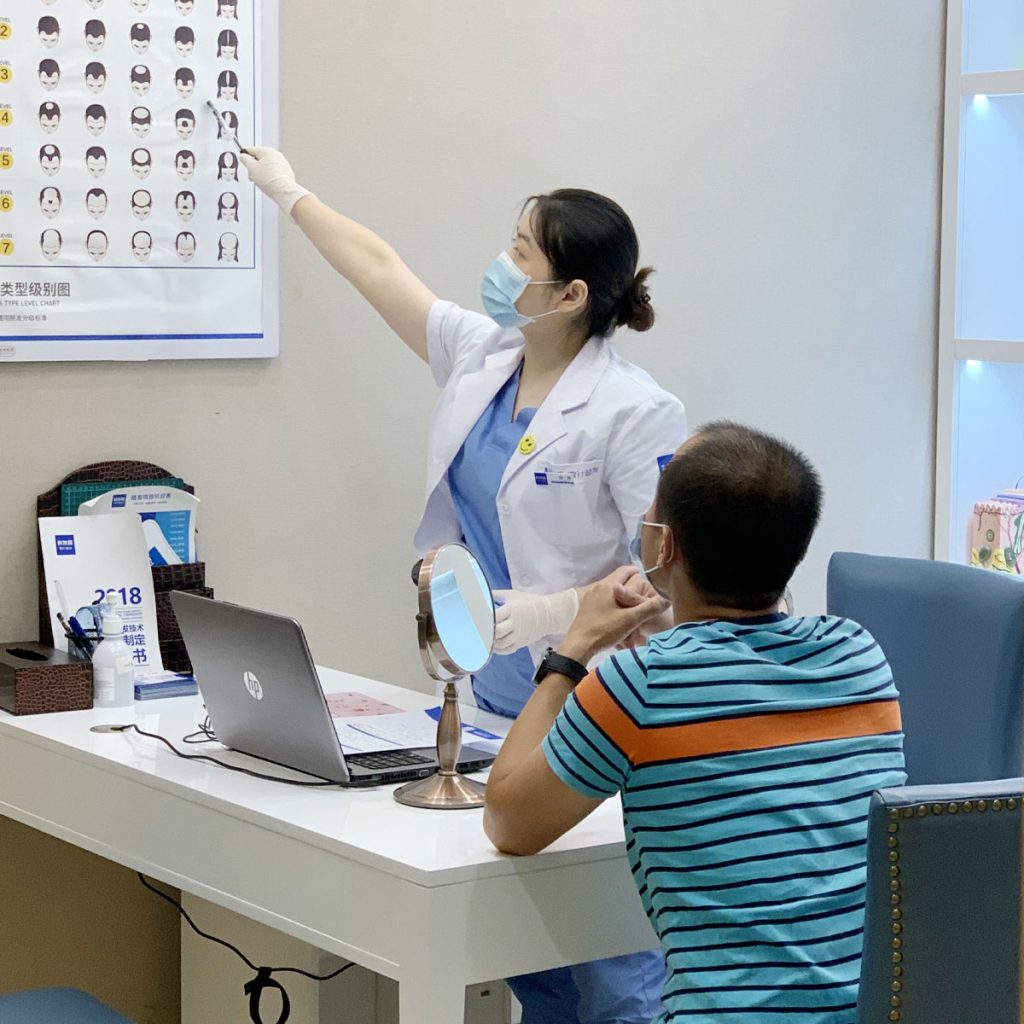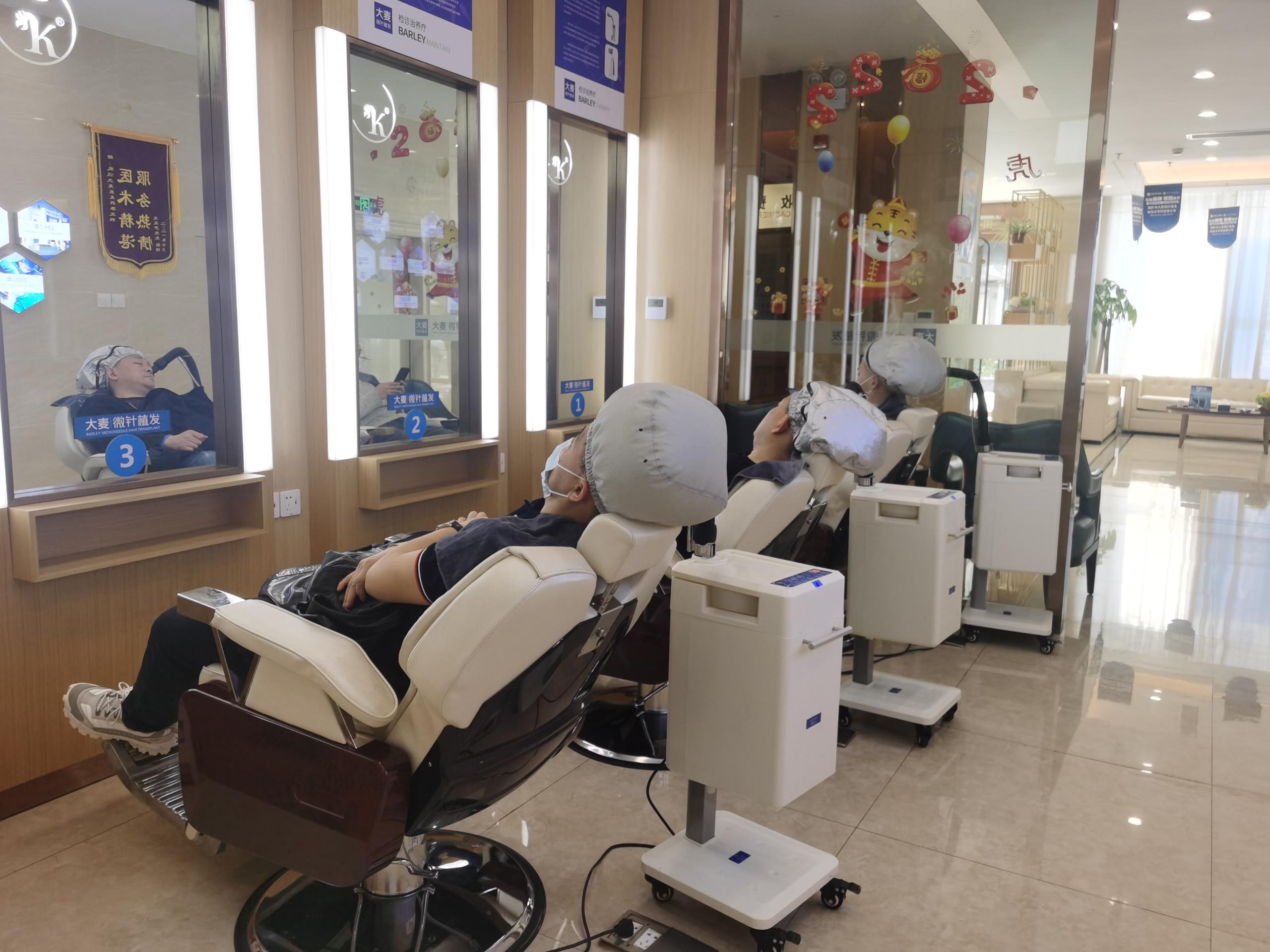Are you planning your hair transplant surgery and a bit excited and nervous at the same time, we get you. A hair transplant is not something that is done on a daily basis. You’re probably wondering what to expect from a hair transplant surgery and how it will go. What should you do to prepare for the surgery, and so on? You will have questions and ambiguities no matter how much research you have done or how many reviews and feedback you have heard, read or seen. You shouldn’t worry if this is the situation with you. In every good hair transplant and restoration procedure, a client and hair expert meet beforehand to discuss the patient’s goals and preferences. Additionally, consultations are a great way for you to clarify all of your doubts and express your worries. Here is a basic guide to help you get the most out of a consultation so that you may ask the proper questions and learn more about the hair transplant procedure you might be considering.

Questions to Ask in a Hair Transplant Consultation
Here is a list of questions to ask your hair transplant specialist to help you get the most out of your consultation.
What is the cause of my hair loss?
The first step is to determine the source of your hair loss. Not all hair loss is caused by the same factor, and if you don’t know what is causing your receding hairline, bald patches, excessive shedding, and hair thinning, or whatever the scenario in your case is, consult with a specialist. This will assist you in determining the best solution for your hair restoration.
What is the best procedure for my hair loss?
Once the doctor has determined the cause of your hair loss, such as genetics, nutrient deficiency, medication side effects, or other lifestyle factors, he or she can recommend a treatment plan that is appropriate for you. As a result, it is prudent to inquire as to which procedure is best and why it is a good procedure for you. So, if the doctor says FUT is not appropriate and FUE or microneedle is better, ask why. Perhaps they will tell you that because you have thin hair, a FUT strip may not be the best option. The point is that it will help you determine whether you are a good candidate for the surgery and what factors you should consider.
Am I a good candidate?
This is a critical question. There are numerous factors that influence whether or not you are a good candidate for a hair transplant procedure. As previously stated, some procedures work best on certain people, such as FUT, which is better suited for people with dense hair, while others may not. It is always beneficial to know if you are a good candidate for a specific procedure.
Second, other factors such as the extent of your existing hair, your age, and any underlying medical condition you may have can all affect your suitability for a hair transplant. Inquire with your doctor about whether you are a suitable candidate and how a hair transplant procedure will benefit you.
How many grafts will I need?
Once you’ve determined the cause of your hair loss and decided on a transplant method, ask your doctor how many grafts you’ll require. Grafts are hair follicles harvested from the donor area and transplanted in areas where hair regeneration is desired. This is important to understand because it will help you determine if you have enough grafts for the desired look, as more density necessitates more, and it will determine the cost of surgery.
How much Hair Transplant will cost me?
Because there is no set price for surgery, the cost is determined by the personalized plan, and thus prices vary. A hair expert can tell you how much your hair transplant surgery will cost after you have finalized the type of procedure that the doctor recommended and determined the number of grafts that you will require. As a result, inquire with your hair transplant doctor about the cost and what is included in the plan.
What will the procedure entail?
It is a good idea to know what will happen during surgery in order to be better prepared for it. You should inquire with the doctor about the use of local anesthesia. Discuss any medical conditions you may have and how long the surgery will take. These questions will provide you with a road map for preparing for surgery day. It is also prudent to understand who will be involved in the surgery.
What credentials do the Doctors and their Teams possess:
Most importantly, ask your doctor and the surgical team what their qualifications are and how long they have been practicing. Hair transplant procedures are delicate and complicated, and skills and experience are essential. Because it will alter your appearance, it is always reassuring to know you are in capable hands.
What will happen during the healing process, and how long will it take?
Another critical factor is knowing how long it will take to recover from surgery. Going to a competent doctor and having the surgery done correctly is the first step in hair transplant and restoration, but aftercare and allowing time to heal are also important. Because the hair will begin to regenerate during the healing period and afterward, you must understand how long this period will last and what you should do during that time to maximize the benefits of a transplant.
Do I need any follow-up procedures?
Most hair transplant and restoration surgeries are performed only once or twice, depending on the individual. Your doctor may occasionally recommend a follow-up procedure or another option to ensure you get the desired result. During the consultation, discuss with your doctor the number of procedures you require and whether any follow-ups are needed.
How should I get ready for the procedure?
You must ask doctors for instructions on how to get ready for the surgery. Despite the fact that hair transplant surgeries are outpatient and less intrusive, it is wise to exercise caution. Making yourself physically and mentally prepared will help the process go more smoothly, and your doctor may assist you with that, so don’t forget to ask them for advice when you have your consultation.
Any uncertainty and anxiety you may have about a hair transplant and restoration operation can be eased with advanced planning and preparation. A wonderful approach to organizing and planning for your surgery is through consultations. You can ask specialists questions, get guidance, and get advice during the consultation to help you make the best choice. So during consultation don’t hold back and ask away whatever is on your mind.



